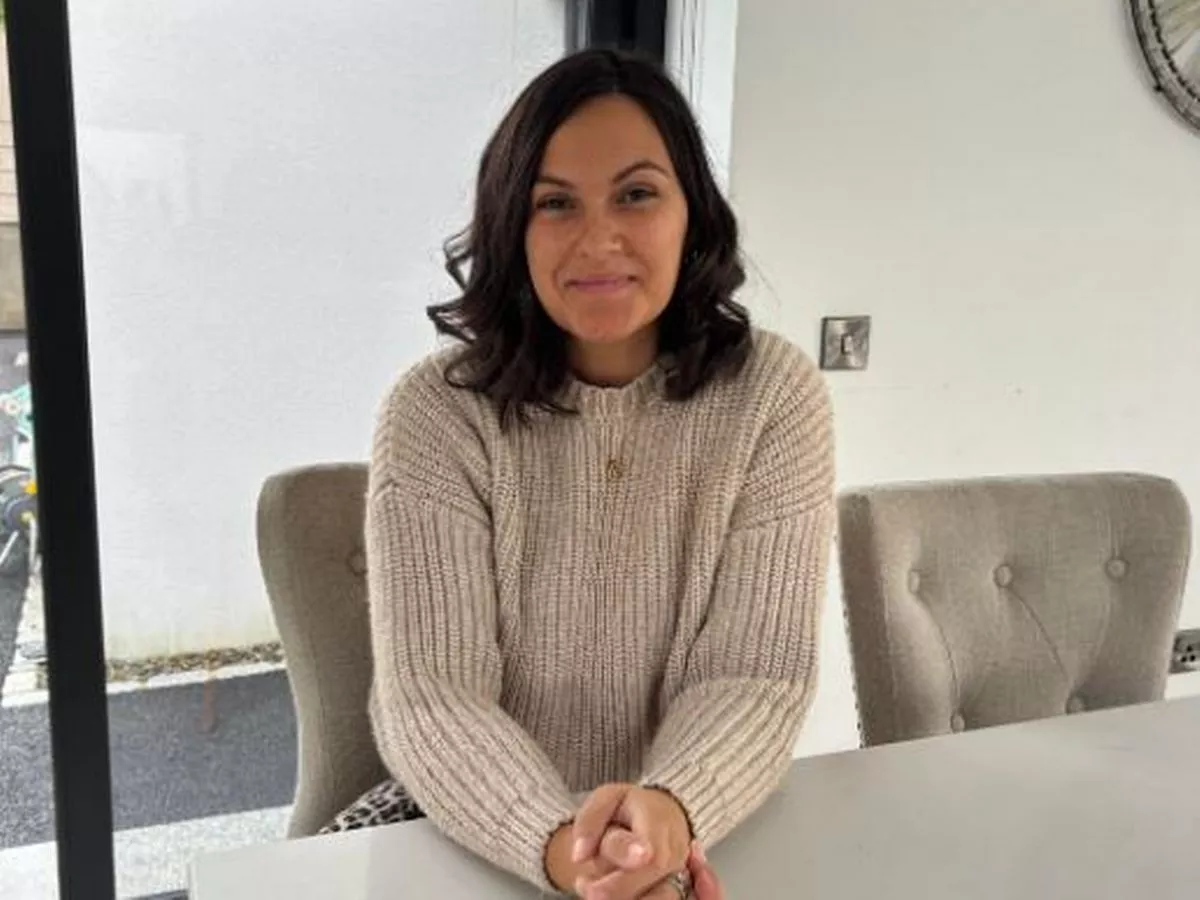Copyright forbes

NEW YORK, NEW YORK - NOVEMBER 23: Gloria Estefan, Sasha Estefan and Emily Estefan visit TalkShopLive's live shopping window experience in New York City. (Photo by Santiago Felipe/Getty Images) Getty Images Warren “Bunny” Weiss won’t waste a precious introduction on you. Jon Langbert has invested in 200 companies by writing $5,000 checks and accepting some founders are lying to him. Gregg Smith mentored three college graduates for 18 months before finally investing. Sam Thompson only invests in companies fitting his thesis, no matter how compelling the pitch might be. Welcome to the reality of startup funding, where the rules you think you know are wrong. In this first of an ongoing series exploring what makes investors write checks, I interviewed via Zoom four investors with radically different approaches to early-stage funding and discovered successful fundraising follows the same principles as successful luxury marketing. The difference between funded and unfunded often comes down to understanding investor personalities before contacting them. For CMOs tasked with creating investor appeal, regard this series as your blueprint for the arduous road ahead. Meet Your Four Startup Funding Archetypes Warren "Bunny" Weiss, Founder and Partner, WestWave Capital WestWave Capital Warren “Bunny” Weiss: The Network Gatekeeper A Silicon Valley veteran with 72 companies in his portfolio, Weiss uses interrogation techniques from his collegiate criminology studies to get entrepreneurs to open up. As an early-stage investor at WestWave Capital, he operates on a “Venture 101” framework, looking for large markets, defensible IP, 70% gross margins, and, above all, a fantastic CEO. He also wants potential for a tenfold return. “Entrepreneurs have to have an incredible vision, but a more violent execution strategy,” he told me from his Silicon Valley home. That focus, he said, means finding “the first hundred customers that all like the color blue” before chasing everyone else. MORE FOR YOU Sam Thompson: The Due Diligence Detective While most investors pore over financials, Sam Thompson at Progress Partners turns due diligence into behavioral psychology. He watches founders like a detective studies suspects, knowing how they respond to questions reveals how they’ll handle real-world pressure. “While it may be looking at the tech here, or the legal here, or the financial there, how is that team reacting?” Thompson explained to me from Long Island. “How are they responding to your questions? How are they following up with you around the process? Because that’s how they’re going to engage with the market.” Jon Langbert: The Portfolio Diversified Stoic With 200 angel and pre-seed investments (roughly one a week), Langbert’s stoic investment philosophy centers on control, discipline, and detachment. He caps each check at $5,000 to keep emotions and risk in check, treating startups like an index fund by diversifying broadly and accepting losses calmly. Unlike Thompson, he avoids deep due diligence, accepting asymmetry as part of the game. “I won’t ever lose any amount of money that’s so material that it causes financial distress for me,” he said from his San Diego home. “Once you have a system that works, why mess with it?” Gregg Smith: The Patient Mentor After two decades on Wall Street helping tech and healthcare companies raise capital, Gregg Smith shifted from banker to what he calls “faking it as a venture investor.” Now a full-time “super angel,” the Evolution VC Partners founder has written checks to more than 300 companies. He and a small group of friends invest their own money. With no limited partners, management fees, or carried interest, he’s removed the misaligned incentives of traditional funds. His decision “comes down to the founder, their vision, their ability to execute,” he told me from New York. He looks for passion, but insists it be grounded: “Many, many people can have passion. I mean the passion can be unfounded though, right?” Startup Funding Reality Check: Access Is Earned, Not Emailed Sam Thompson, founding partner, Progress Ventures Sam Thompson Weiss doesn’t take meetings with strangers. “If you don’t know me, that’s hard,” he confessed. “If you don’t know someone that knows me, that’s hard.” Relationships provide the credibility and context no amount of due diligence can replace. “Ninety percent of what I invest in, there’s a deep connection, either once removed or twice removed.” Our own connection came through his daughter, Ally, founder of Grip Baby, the infant onesie that keeps crawling babies from slipping on hardwood floors. She also co-founded Skylander Ventures with her brother. But even she didn’t get introductions to VC capital from her father. “My dad’s a venture capitalist and he’s been doing that for the last 35 years,” Ally told me. “Transparently, love him so much, but my brother and I have worked our asses off to get where we are. There’s been no connection. You think like most kids with the VC dad, you’re getting connections made. We’ve done it all ourselves.” At WestWave Capital, Weiss receives endless cold outreach, most of it formulaic. “The number one thing that irks me is people don’t take the time to really write something that’s impactful and different,” he said. “It’s a standard boilerplate… delete, delete, delete, go in spam filter.” LinkedIn, he added, makes it worse. “For someone like me, it’s a curse,” Weiss lamented. “You’re on LinkedIn with John Doe, so can you introduce me to him? Are you kidding me? You think I’m going to use a precious introduction on someone I don’t know?” There are still ways in if you know where to look. Langbert finds his deal flow everywhere but LinkedIn. “I’m a mentor in a number of programs,” he said. “They refer founders to me.” He judges pitch competitions and mentors through Clean Tech Open, Harvard Alumni Entrepreneurs, MassChallenge, Techstars, and university programs at SDSU and UCSD, among others. Across these channels, he sees about 50 deals per week and invests in roughly 2%. Smith discovered Hemper, a cannabis accessories and lifestyle brand, at one such competition, where three college graduates pitched pre-rolled cannabis paper cones. He saw potential in co-founders Bryan Gerber, Ravjot Bhasin and Henry Kochhar but not readiness. “They weren’t ready, and I mentored them,” Smith recalled. “I’m like, do this. Do this. Why don’t you change the business to this and do that?” Eighteen months later, after the founders listened and iterated, he wrote the check. Today, Hemper does $50 million in annual revenue. At Progress Partners, Thompson takes a different route, building relationships around investment theses rather than personalities. With both venture and banking arms operating under strict ethical separation, his pipeline comes naturally from growth-stage clients and portfolio companies seeking partnerships. When he developed conviction around social commerce—booming in Asia, nascent in the U.S.—he went looking for companies that fit. His investment in TalkShopLive came from identifying a market opportunity, then finding the right company to back. The Startup Funding Death Sentence: Why Confusion Kills in 15 Seconds Jon Langbert, Angel Investor, Menor and Advisor Jon Langbert “People ask me my superpower,” Langbert said. “I can watch a pitch of anywhere from 30 seconds to 30 minutes, and I will boil that pitch down to a 15- or 20-second pitch that’s the kernel of, here’s the problem, here’s our solution.” Take Tom Gauthier, founder of AgTechLogic, one of Langbert’s portfolio companies. “He talks and talks because his technology has so many different applications,” Langbert said. It could detect mold on grapevines for Gallo, inspect berries for Driscoll’s, and spray weeds for government agencies. Every application was fascinating. None of it mattered until Langbert helped him find the core. “I’ve counseled him over the year I’ve known him now to stop trying to explain everything about his business when he meets somebody and boil it down to: we use cameras and sensors to precision spray pesticides, reducing their usage by 90%.” That’s it. One sentence: problem, solution, impact. But founders can’t rely on investors to do this work for them. “If a startup gets to slide 3 and we don’t understand, we stop them,” Weiss added. Smith applies his own clarity filter: the dining-room-table test. “I’m not really a deep-tech person,” he explained. “I invest in consumer Internet things I can understand and explain to my kids over a dining-room table.” If you can’t make a 12-year-old understand your business model while passing the mashed potatoes, how will you ever scale for mainstream adoption? Even the clearest pitch, though, must align with what an investor is actually seeking. Thompson’s conviction around social commerce came from studying the Chinese market, where despite massive GMV, the average seller earns about $11,000 annually. “It’s literally everybody and their cousin putting up their own little shows and selling stuff online,” he explained. This insight shaped how he evaluated TalkShopLive, particularly since he was initially skeptical when he saw the platform’s celebrity roster: J-Lo, Martha Stewart, Bono, Paul McCartney. He thought the founder was just trying to impress with these big faces. But then he discovered the CEO’s background running social for Fox Studios and managing Garth Brooks’ social media. The celebrity strategy created a virtuous cycle where big names validated the platform for other influencers. The Human Algorithm of Startup Funding Before approaching any investor, answer these three questions in one sentence each: What problem do you solve? How do you solve it? Why does this matter? If you can’t stop at one sentence, you’re not ready to pitch. But even clarity means nothing if it doesn’t align with what your target investor actually values. At a recent partner meeting, Weiss was trying to recall an investor’s name. He described the person: bald, worked at a specific firm, went to a particular school, lives in the Bay Area. His youngest partner fed the description into ChatGPT. “Came up with the answer like that,” Weiss marveled. “And it came up with all these relationships – all from just physical descriptors of this guy. And I was like, wow, you can’t do that on LinkedIn.” If AI can identify investors from physical traits, imagine what it can uncover about their investment patterns, portfolio companies, and strategic priorities. Smart founders would do well to use the technology to research investors deeply before approaching them. What companies have they invested in? What’s their thesis? What do they write about on social media? What matters to them? All of this is the exact same information required to develop an effective consumer marketing strategy. Startup funding isn’t only about capital. The same psychological triggers that make consumers crave luxury brands also make investors reach for their checkbooks. It’s not just the pursuit of luxury that’s emotional. The pursuit of investment is, too, although not quite with the same emotions behind $100,000 watch purchases. With investing, it’s all about that gut feeling. In Part 2, we’ll explore Thompson’s psychological tells predicting founder failure, uncover Langbert’s systematic approach to 200 investments, decode Weiss’s “violent execution” philosophy separating funded founders from dreamers, and explore why Smith’s 18-month mentorship model might be your secret weapon for landing serious startup funding money. Editorial StandardsReprints & Permissions



